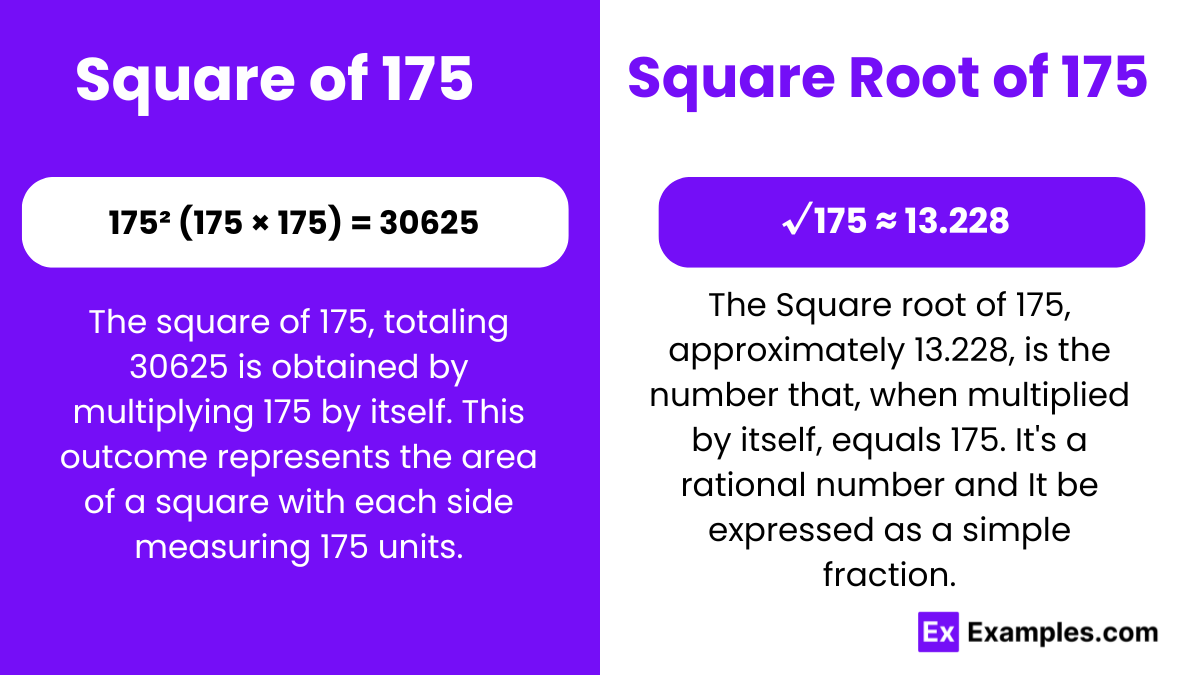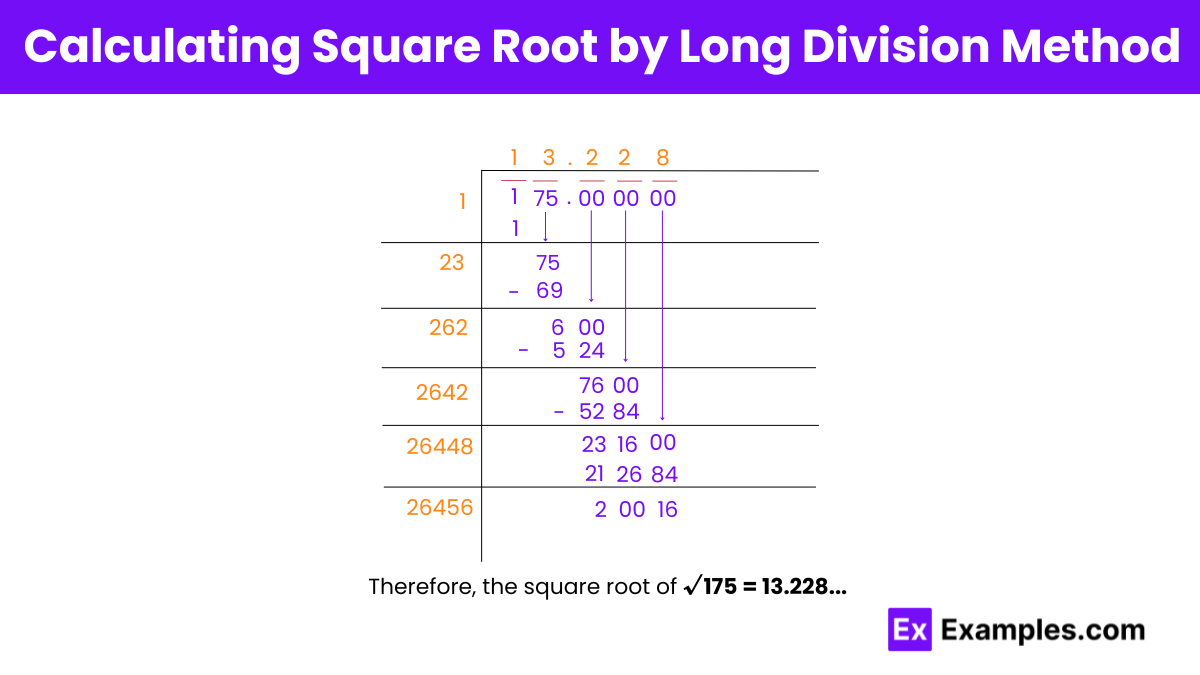What is the square of 175?
30,625
32,500
30,225
31,000


Within the domain of algebraic mathematics, squares and square roots hold significant importance. Squaring a number, such as 175, entails multiplying it by itself, yielding 30625. This foundational operation is vital for exploring rational and irrational numbers. A grasp of these fundamentals enriches understanding of mathematical relationships and patterns. Squares illuminate inherent number properties, while square roots unravel intricate numerical mysteries. These concepts serve as beacons, guiding mathematical explorations into fractional territories. Proficiency in squares and square roots equips mathematicians to navigate varied mathematical landscapes, unveiling the elegance and complexity inherent within algebraic frameworks.
The square of 175 equals 30,625, obtained by multiplying 175 by itself, a fundamental operation in algebraic mathematics, uncovering inherent number properties.
The square root of 175 is approximately 13.228. This fundamental mathematical operation reveals the value that, when multiplied by itself, equals 175.
Square Root of 175: Approximately 13.228
Exponential Form: 175^½ or 175^0.5
Radical Form: √175
Rational numbers are expressible as the quotient of two integers. Irrational numbers, however, cannot be represented as fractions of integers. Examples of irrational numbers include the square roots of non-perfect squares.

Step 1: Start pairing the digits from the right by placing a bar above them.
Step 2: Find a number whose square is less than or equal to 175. Using 23 as the divisor, the quotient is 13 and the remainder is 6.
Step 3: Double the divisor (23 × 2 = 46) and add a blank to its right. Guess a digit to fill the blank. Choose the largest digit that, when the new divisor is multiplied by the new quotient, gives a product less than or equal to the dividend. Divide and write the remainder. Repeat this process to obtain the desired decimal places.
Perfect square cannot be expressed as the square of an integer. Therefore, the square root of 175 is an irrational number.
The prime factorization of 175 is 5 × 5 × 7, where 5 and 7 are both prime numbers. Therefore, the prime factorization of 175 is 5² × 7.
The cube root of 175 is approximately 5.495.
The square root of 175 rounded to the nearest integer is 13.
Text prompt
Add Tone
10 Examples of Public speaking
20 Examples of Gas lighting
What is the square of 175?
30,625
32,500
30,225
31,000
What is the approximate square root of 175?
13.23
12.70
13.23
14.00
Which of the following values is closest to the square of 175?
31,200
30,625
32,000
29,800
If a number squared is 30,625, what is the original number?
175
180
190
200
What is the exact square root of 175?
13.2288
13.24
12.95
13.20
Which option represents the square root of 175 rounded to two decimal places?
13.22
13.23
13.20
13.25
What is the approximate value of √175 × √175?
175
350
30,625
175²
Which of the following numbers is the closest to 175²?
30,700
30,625
31,000
32,000
If x² = 30,625, what is x?
175
180
185
190
What is the square root of 175 squared?
175
30,625
13.2288
175²
Before you leave, take our quick quiz to enhance your learning!

